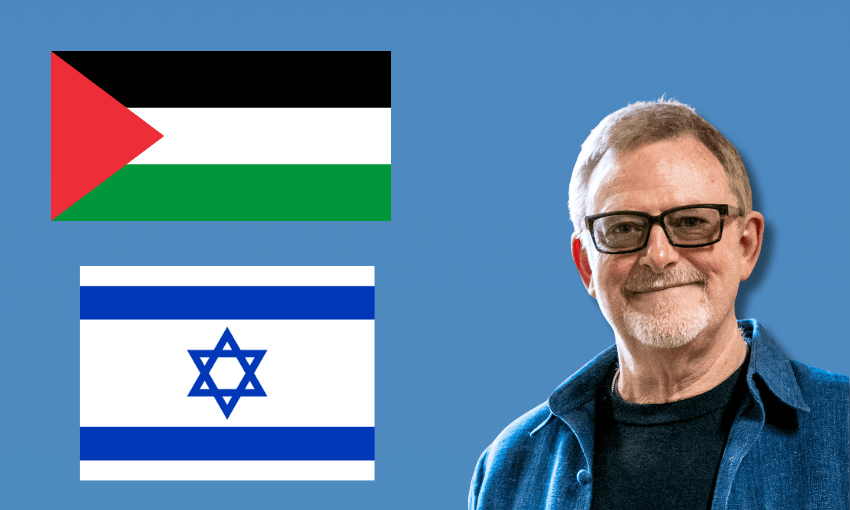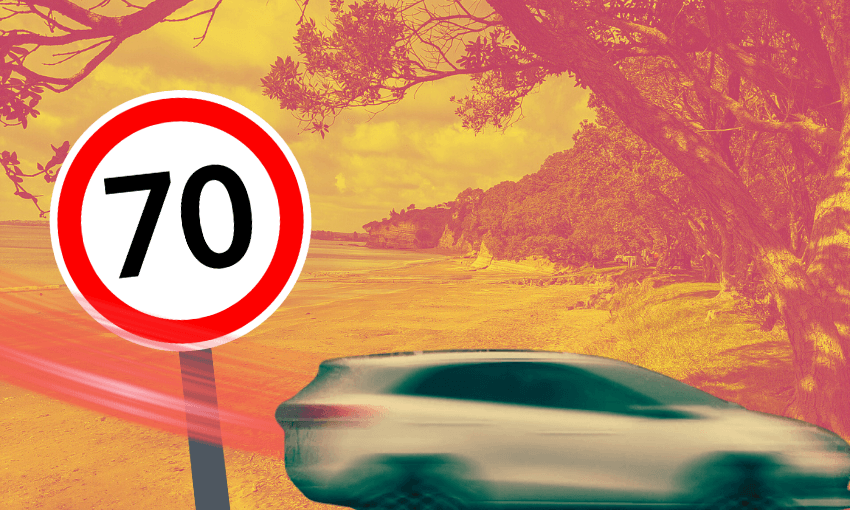The alleged comments were made in a meeting with a Jewish community leader.
12:20pm: This story has been updated with a response from justice minister Paul Goldsmith.
11.45am: This story has been updated with a response from Stephen Rainbow.
Three New Zealand community groups, two representing Jewish voices, are calling for Stephen Rainbow to resign from his role as chief human rights commissioner after what they believe were Islamophobic comments made during an official meeting with a Jewish community leader.
At the time of Rainbow’s appointment last year, he was questioned about his history of pro-Israel statements and writing. Rainbow told RNZ that his views on Israel weren’t “particularly relevant” to his role as chief human rights commissioner. In January 2024, Rainbow wrote an op-ed for the Israel Institute about New Zealand’s changing relationship with Israel. “Now, in New Zealand, to be on the Left it seems -if the kaffiyeh wearing antics of Labour and Green MPs of late are any indication- to be anti-Israel has become an integral part of the Leftist creed.
“The Left has found a new underdog to replace the Jews -the Palestinians- in spite of the fact that the treatment of gay people, women, and political opponents wherever Palestinians have control is barbaric.”
On February 24, Philippa Yasbek met with Rainbow, race relations commissioner Melissa Derby and two Human Rights Commission staffers to discuss the Jewish community and race relations in New Zealand. Yasbek was attending as the spokesperson for Alternative Jewish Voices and Dayenu: Jews Against Occupation.
In an email of complaint sent to justice minister Paul Goldsmith, who hired Rainbow after an independent panel deemed him “not recommended” for the role, Yasbek laid out what happened at the meeting. She described the topics of discussion her assertion that there is a plurality of voices in the Jewish community in New Zealand. She argued that any suggestion of there needing to be a special focus on combatting antisemitism risked conflating antisemitism with anti-Zionism, and that “racism is best fought by uniting with other groups experiencing racism, rather than arguing that Jews are exceptional in comparison to other ethnic or religious groups”. In the meeting, Yasbek noted the common threat of white supremacists to both Jewish and Muslim communities.
“Dr Rainbow disputed my assertion that white supremacists are still the greatest threat to the Jewish community in Aotearoa. He told me that the SIS threat assessment shows that Muslims pose a greater threat to the Jewish community in New Zealand than white supremacists.” In the letter to Goldsmith, Yasbek detailed how she told Rainbow she found it hard to believe but admitted she hadn’t read the assessment in full herself.
The SIS threat assessment referred to is New Zealand’s Security Threat Environment 2024, an annual report from the New Zealand Security Intelligence Service that outlines the most recent concerns and trends identified regarding threats to communities within New Zealand. In the “violent extremism and terrorism” chapter, the report states that “Identity-motivated violent extremism (IMVE) continues to be a prominent ideology within New Zealand’s violent extremist environment”. IMVE refers to violent extremists “who seek to advance their own identity through violence or seek to denigrate the perceived identity of others”.
It immediately elaborates: “White identity-motivated violent extremism (W-IMVE) remains the dominant IMVE ideology in New Zealand. Terrorist attack-related material and propaganda, including the Christchurch terrorist’s manifesto and livestream footage, continue to be shared among IMVE adherents in New Zealand and abroad.”
The director of security at NZSIS, Andrew Hampton, told the Spinoff he didn’t personally hear Rainbow’s alleged remarks but “if this is indeed what he said, it misrepresents what our 2024 Security Threat Assessment says”.
“At no point does it state or imply that ‘Muslims posed a greater threat to the NZ Jewish community than white supremacists’.
In her letter to Goldsmith, Yasbek shared her concerns about Rainbow’s comments and the thinking behind them. “I was shocked that the chief human rights commissioner would make such nakedly Islamophobic statements to me, a complete stranger. I was also offended by his implicit assumption that I, as a Jewish person, would tolerate or condone them.”
Yasbek sent an email to Rainbow following the meeting, highlighting the relevant parts of the threat assessment regarding violent extremism in New Zealand. Rainbow thanked her for the feedback, saying, “I’ll certainly consider your information… and revise my position accordingly, if appropriate.”
The next day Rainbow followed up himself, having reread the assessment. He cited another line from the report that he said he based his comments on: “The conflict in Gaza is being used by terrorist organisations to drive online radicalisation and recruitment. These are global trends but similar signs are beginning to appear in our environment.”
The Federation for Islamic Associations in New Zealand (FIANZ) has called Rainbow’s comments “an alarming warning bell for human rights in this country”. Chair of the FIANZ Royal Commission and advocacy team Abdur Razzaq attended a meeting with Rainbow and justice secretary and Ministry of Justice CEO Andrew Kibblewhite after learning of the comments. Razzaq said in a statement that Rainbow apologised in the meeting and later sent a “brief email apology”.
FIANZ in a statement applauded Christopher Luxon for “taking a prominent lead to ensure peace and cohesion between the various faith and ethnic communities” before accusing Rainbow of “misusing his position as the chief human rights commissioner to sabotage the pathway to social cohesion”.
Alternative Jewish Voices, FIANZ and Dayenu: Jews Against Occupation have called on the justice minister and prime minister to investigate the matter. The justice minister’s office confirmed that he had received a complaint but did not offer a response. The Human Rights Commission were approached for comment for this story but did not provide a comment before publication.
Update, 11.44am: Stephen Rainbow has apologised to the Muslim communities in New Zealand. In a written statement, Rainbow responded to calls for his resignation with an apology. “On 28 of February I learned that at an engagement with Alternative Jewish Voices I had caused offence to Muslim communities,” he said. “In realising my error, I met with FIANZ and apologised in person. The Commission and I have continued to engage to repair the relationship, which I was attempting to build.
“I have read the statement by FIANZ and wholeheartedly publicly apologise to our Muslim communities. They should always feel that they can trust the Human Rights Commission to protect their rights. I am even more committed now to ensure that I am the Chief Human Rights Commissioner for all New Zealanders.”
Update: 12.20pm: Paul Goldsmith in a statement said he had “no intention of requesting the resignation of the Human Rights Commissioner”.
“By his own admission, in this instance he did not express himself as well as he could have. I will be meeting with the Commissioner in the next few days and encouraging him to be more careful with his comments in future.”


